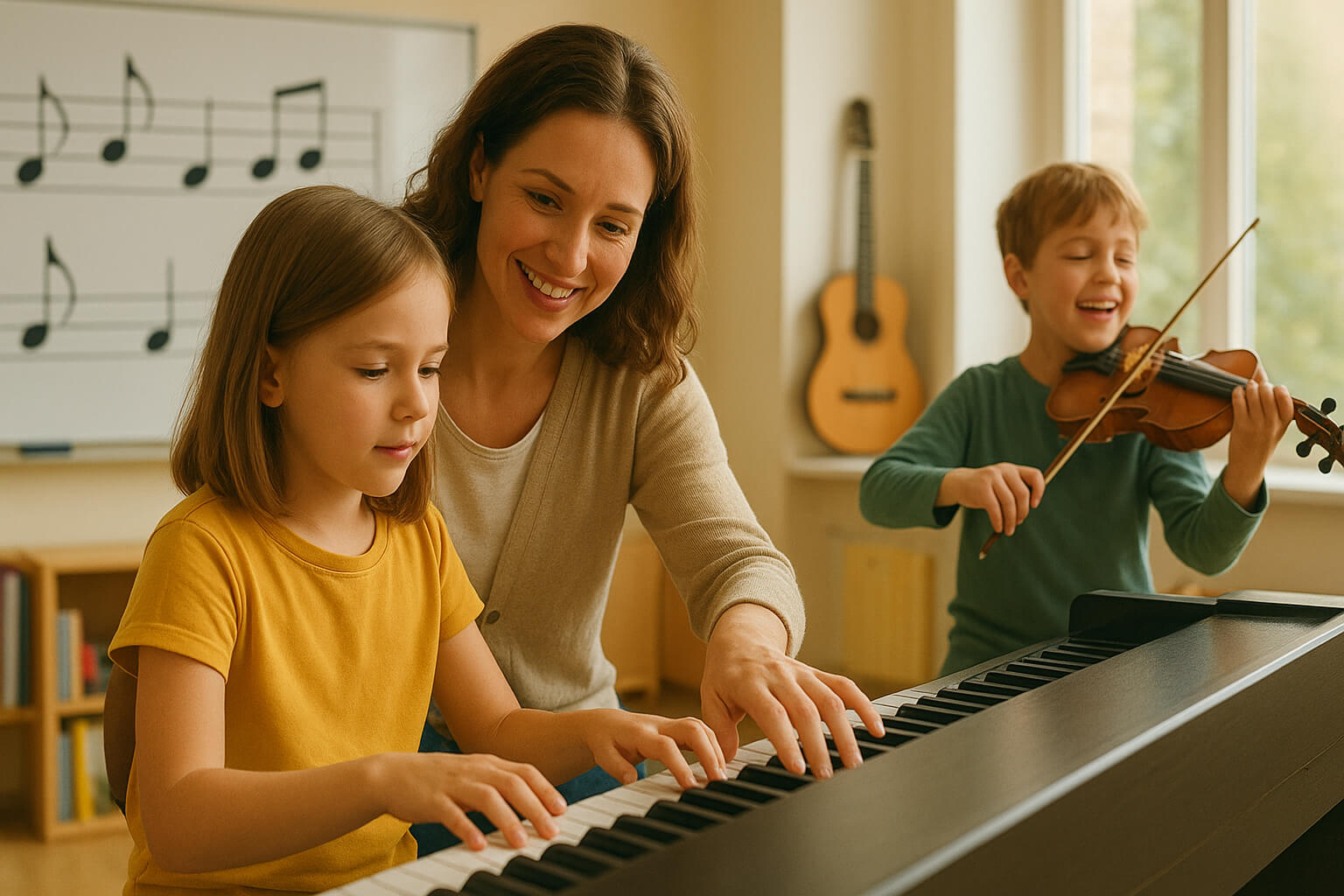August 18, 2025

Music is a powerful tool in a child’s development. It boosts brain function, nurtures emotional growth, and strengthens self-discipline—all while being fun and expressive. It’s no wonder so many parents ask:
"When should my child start music lessons?"
The answer depends on your child’s age, personality, developmental readiness, and interest in music. While there’s no single “perfect” age, this guide breaks down what music learning can look like at each stage—and how to best support it.
Even before they can walk or talk, babies and toddlers can benefit from musical exposure. This is the ideal time to introduce your child to sound, rhythm, and movement in a natural, playful way.
Why it matters: According to PBS Parents, music enhances language development, memory, and emotional bonding during early childhood. Your child’s brain is forming key neural pathways—and music can help strengthen them.
Pro Tip: No need for structured lessons yet. Instead, make music part of your daily routine—during playtime, bath time, or even while riding in the car.
Children aged 3 to 5 are naturally curious and imaginative—perfect traits for musical exploration. At this age, kids can begin to recognize pitch, rhythm, and even repeat short melodies.
Best musical activities for ages 3–5:
Structured lessons can begin lightly around age 4 or 5—especially for instruments like piano or violin—but lessons must stay fun and short (15–20 minutes).
Why piano and violin work well at this age:
Once children enter school age, they develop the motor skills, reading ability, and attention span needed to truly benefit from structured music lessons. This is often the ideal time to begin formal instrument training.
Ideal instruments to start at this age:
Kids this age are also learning how to follow instructions, develop discipline, and set small goals—all skills that pair well with music training.
Tips for success:
Children may also begin to form preferences in musical genres—so let them explore! Classical, pop, folk, or rock-inspired lessons can keep motivation high.
By age 10 and up, kids are becoming more independent and often more self-directed in their interests. While it’s not “early” in a traditional sense, it’s a fantastic time to start—especially if they’ve shown consistent interest in music.
Instruments that appeal to this age group:
Many older kids are drawn to music they hear on streaming platforms or video games. Encourage them to learn the instruments that reflect their taste, and they’re more likely to stay engaged.
According to TakeLessons, older beginners often catch up quickly due to:
If your child is interested in music tech, check out The Basics of Music Production Software (DAWs) to introduce them to digital creativity.
Every child’s musical journey will look different. Some may be ready for piano at age 4, while others thrive picking up a guitar at 12. What matters most is finding the right fit at the right time.
A quick summary:
Parent Tips:
Whether your child is singing songs in preschool or composing beats as a teen, music can be a lifelong source of joy, discipline, and creative confidence.
Stay up to date with the latest tips, expert insights, product reviews, and step-by-step guides to help you grow, create, and succeed—no matter your industry or passion.